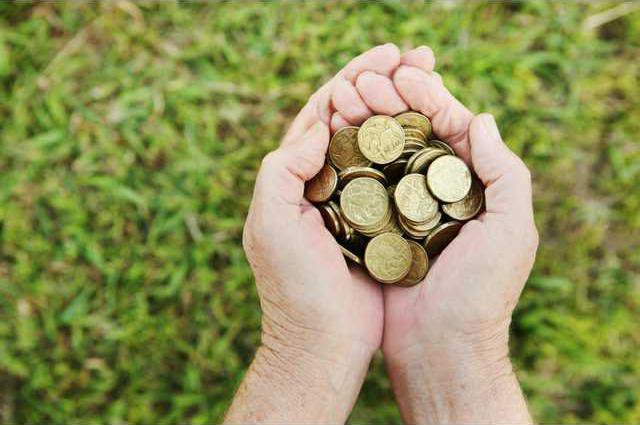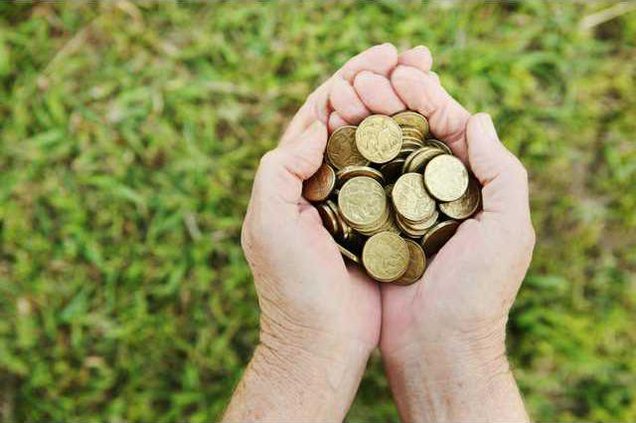Americans are among the best at many things but saving money isnt one of them.
A recent study by the Pew Charitable Trust found a majority of American households could replace less than one month of their income through liquid savings. By contrast, financial advisers recommend a minimum of several months of readily available savings to meet unexpected expenses.
Long-term savings don't fare much better. The Center for Retirement Research at Boston College reports more than half of all American households lack sufficient retirement savings to maintain pre-retirement lifestyles, even if family members continue to work until age 65.
And personal finance experts say the problem seems to be growing worse.
We're lousy savers because we have been carefully trained and are strongly pressured to be excellent spenders, said Mike Arman, a financial adviser in Oak Hill, Florida.
There are ways to get into a savings habit, as well, and put money aside for unexpected emergencies or retirement. But making the shift from spender to saver takes some psychological as well as practical changes in how one manages money.
Possible causes
Fueling that pressure to spend is a culture of immediate gratification.
We want the newest this and the latest that, said Certified Financial Planner Ed Snyder, of Carmel, Indiana. We also want instant gratification. We don't want to wait until we have adequate savings before we splurge on that new car.
Not every explanation behind Americans' poor savings habits boils down to a critique of a shop til you drop mentality. Savings account interest rates below 1 percent dont offer much incentive. The Pew Charitable Trust report also found that, from 1999 to 2009, the typical workers earnings grew by a paltry 2 percent. By contrast, the average workers earnings jumped 22 percent between 1979 and 1999.
In my practice, I find many people just do not have the means to save, said Hobe Sound, Florida, Certified Financial Planner R. Joseph Ritter Jr. Their incomes are too low or their priority expenses are so close to their income that there is just not enough left over for meaningful savings.
On top of all that, even our very optimistic nature works against us when it comes to beginning and maintaining adequate savings.
Americans don't save nearly the way Europeans or Asians save for a simple reason: We take as an article of faith that the future will be better than the past; in American history, this is a proven concept, said Margaret J. King, director of the Center for Cultural Studies and Analysis, a Philadelphia-based think tank that studies decision-making. So we always believe that in the next three to five years we'll be better off. That takes the pressure and urgency off the savings mandate in the present.
The savings habit
One strategy to encourage saving is to start the practice at an early age. Even depositing a few coins into a piggy bank at every opportunity can morph into something more substantial later on.
Saving is a habit. The earlier people can get into this habit, the better served they will be, said Tom Scanlon, a Manchester, Connecticut, financial adviser. Recent college grads also need to be taught to be more savvy. It's difficult to get started if you have a car payment, student loans and need to pay rent.
Another step is to take advantage of workplace savings options, including such programs as 401k and 403b retirement plans, health care savings accounts and other choices.
Some employers have added 'auto-enrollment' to their retirement plans, said Scanlon. Essentially, new employees are automatically enrolled into the retirement plan and funds are withdrawn from their paycheck to contribute. Any new employee has to opt out if they don't want to participate.
A budget can also help in establishing a savings plan.
The term budget is often associated with deprivation all the things that are beyond your financial reach. To counteract that perception, focus on goals for savings, such as a vacation or a major purchase: Set savings goals. If you have a vacation in a year, calculate how much you'll need and save a little each month, said Snyder.
Mind over money
Financial experts agree that Americans mindset about money needs a substantial do over to help boost savings levels. Start with dismissing the proposition that owning something, however nice, translates to happiness.
If a purchase does genuinely intrigue you, resist the urge to stampede to the store.
Delay gratification. Just because you want it, don't run out and buy it right now, said Snyder. Give it a week and often your urge to buy it will pass.
Finally, become a more thoughtful consumer. By separating the frivolous from the necessary, the issue of not being able to afford to save becomes increasingly moot.
We buy stuff because we're constantly buffeted by the notion that we can't live without that stuff, said Bryan Sory, co-founder of Qwyvr, an online payment system. Stuff expenditure' is upwards of 60 percent of Americans' net spending. Cut that out and the entire notion that Americans don't save gets stood on its head.
A recent study by the Pew Charitable Trust found a majority of American households could replace less than one month of their income through liquid savings. By contrast, financial advisers recommend a minimum of several months of readily available savings to meet unexpected expenses.
Long-term savings don't fare much better. The Center for Retirement Research at Boston College reports more than half of all American households lack sufficient retirement savings to maintain pre-retirement lifestyles, even if family members continue to work until age 65.
And personal finance experts say the problem seems to be growing worse.
We're lousy savers because we have been carefully trained and are strongly pressured to be excellent spenders, said Mike Arman, a financial adviser in Oak Hill, Florida.
There are ways to get into a savings habit, as well, and put money aside for unexpected emergencies or retirement. But making the shift from spender to saver takes some psychological as well as practical changes in how one manages money.
Possible causes
Fueling that pressure to spend is a culture of immediate gratification.
We want the newest this and the latest that, said Certified Financial Planner Ed Snyder, of Carmel, Indiana. We also want instant gratification. We don't want to wait until we have adequate savings before we splurge on that new car.
Not every explanation behind Americans' poor savings habits boils down to a critique of a shop til you drop mentality. Savings account interest rates below 1 percent dont offer much incentive. The Pew Charitable Trust report also found that, from 1999 to 2009, the typical workers earnings grew by a paltry 2 percent. By contrast, the average workers earnings jumped 22 percent between 1979 and 1999.
In my practice, I find many people just do not have the means to save, said Hobe Sound, Florida, Certified Financial Planner R. Joseph Ritter Jr. Their incomes are too low or their priority expenses are so close to their income that there is just not enough left over for meaningful savings.
On top of all that, even our very optimistic nature works against us when it comes to beginning and maintaining adequate savings.
Americans don't save nearly the way Europeans or Asians save for a simple reason: We take as an article of faith that the future will be better than the past; in American history, this is a proven concept, said Margaret J. King, director of the Center for Cultural Studies and Analysis, a Philadelphia-based think tank that studies decision-making. So we always believe that in the next three to five years we'll be better off. That takes the pressure and urgency off the savings mandate in the present.
The savings habit
One strategy to encourage saving is to start the practice at an early age. Even depositing a few coins into a piggy bank at every opportunity can morph into something more substantial later on.
Saving is a habit. The earlier people can get into this habit, the better served they will be, said Tom Scanlon, a Manchester, Connecticut, financial adviser. Recent college grads also need to be taught to be more savvy. It's difficult to get started if you have a car payment, student loans and need to pay rent.
Another step is to take advantage of workplace savings options, including such programs as 401k and 403b retirement plans, health care savings accounts and other choices.
Some employers have added 'auto-enrollment' to their retirement plans, said Scanlon. Essentially, new employees are automatically enrolled into the retirement plan and funds are withdrawn from their paycheck to contribute. Any new employee has to opt out if they don't want to participate.
A budget can also help in establishing a savings plan.
The term budget is often associated with deprivation all the things that are beyond your financial reach. To counteract that perception, focus on goals for savings, such as a vacation or a major purchase: Set savings goals. If you have a vacation in a year, calculate how much you'll need and save a little each month, said Snyder.
Mind over money
Financial experts agree that Americans mindset about money needs a substantial do over to help boost savings levels. Start with dismissing the proposition that owning something, however nice, translates to happiness.
If a purchase does genuinely intrigue you, resist the urge to stampede to the store.
Delay gratification. Just because you want it, don't run out and buy it right now, said Snyder. Give it a week and often your urge to buy it will pass.
Finally, become a more thoughtful consumer. By separating the frivolous from the necessary, the issue of not being able to afford to save becomes increasingly moot.
We buy stuff because we're constantly buffeted by the notion that we can't live without that stuff, said Bryan Sory, co-founder of Qwyvr, an online payment system. Stuff expenditure' is upwards of 60 percent of Americans' net spending. Cut that out and the entire notion that Americans don't save gets stood on its head.








